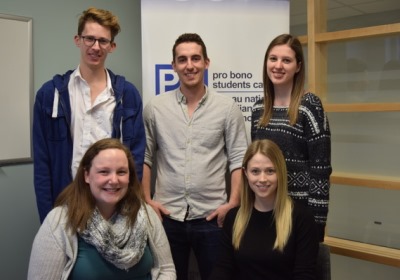
More and more litigants in family courts are self-represented. Pro Bono Students Canada at Queen’s is responding to the crisis by participating in a multi-site research study. The Family Law Litigant Survey project sees student volunteers administer a questionnaire to self-represented litigants in family court waiting rooms.
“The survey’s purpose is to collect data about the experiences of represented and self-representing litigants in the family court system,” says Beth Ambury, Law’18, the project lead. “There's a crisis in family law right now because a high number of litigants are not represented by lawyers when the process can be difficult. By gathering the experiences and opinions of litigants, the study will help show how the system can adapt to this development.”
The study is part of a larger Social Sciences and Research Council (SSHRC)-funded research project on access to family justice. The lead researcher at Queen’s is Professor Nick Bala, Law’77. He trains PBSC Survey volunteers and is available throughout the year to assist the team. “He always makes time for students,” says Ambury.
Student volunteers gain valuable client interaction experience. They go out to the courthouse, interview litigants and have the opportunity to see how law functions and impacts people’s lives in the real world.
“The litigants get to feel heard and know that their experiences matter,” says Ambury. “The community will benefit from the program because it will help reform the family law system by pointing to areas of improvement.”
Ambury got involved in the project due to her interest in the subject area. “I think the crisis of representation is a very important problem that is not going away. Family law issues are personal, emotional and complicated. When people can't afford lawyers to help them navigate the process, it can have a huge impact on their lives. It is important to determine out how to serve them best based on their needs.”